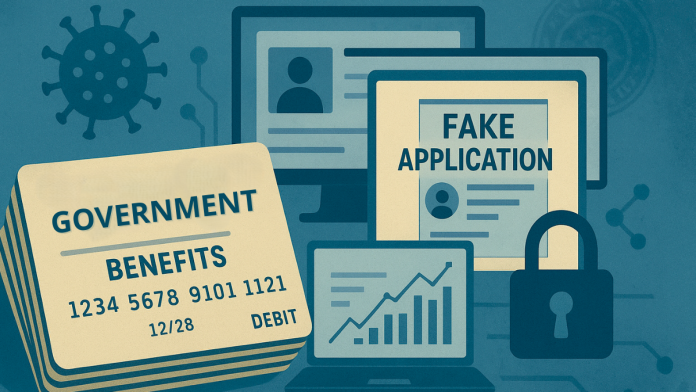Roosevelt Gulley III, 41, from Sacramento, has admitted to carrying out a large-scale fraud scheme during the COVID-19 pandemic. U.S. Attorney Eric Grant announced that Gulley pleaded guilty to wire fraud and aggravated identity theft after federal investigators uncovered his involvement in a scam that targeted California’s unemployment benefits program.
Court documents show that the fraudulent activity took place between July and September 2020, at the height of the pandemic when many workers were struggling to make ends meet. During this period, Gulley collected personal information from unsuspecting people, including their names, birth dates, and Social Security numbers. Using these details, he filed fake applications for unemployment insurance benefits through the California Employment Development Department (EDD).
The unemployment benefits were meant to support individuals who lost their jobs during the pandemic. Instead, they were exploited through false applications that listed addresses controlled by Gulley. Once debit cards loaded with benefits were mailed out, he picked them up and withdrew money from various ATMs.
Investigators revealed that Gulley submitted at least 79 fraudulent claims. The scam resulted in a confirmed loss of more than $575,000, with an intended loss estimated at over $1.5 million.
Dwayne Anderson admits to defrauding American woman of more than $181,000
How the Scheme Worked
According to federal investigators, Gulley used a straightforward but damaging method to defraud the system. After stealing personal data, he created electronic applications and tricked the system into believing they came from real applicants. This caused the unemployment office to send debit cards filled with money to the addresses he provided.
Once he gained access to the debit cards, he withdrew the funds at cash machines. The money that should have gone to people in need during a national health crisis was instead stolen for personal gain.
Quentin Heiden, Special Agent in Charge of the U.S. Department of Labor, Office of Inspector General, stated that Gulley collected personal information without people’s knowledge to illegally obtain benefits. He emphasized that unemployment insurance funds were meant for American workers who truly lost their jobs during the pandemic, not for fraudulent schemes.
Authorities stressed that this type of crime hurts not only the government but also ordinary citizens. Victims whose identities were stolen had their personal details exposed and misused. Meanwhile, taxpayers were left carrying the financial burden of the fraud.
The investigation was carried out by the U.S. Department of Labor’s Office of Inspector General and the California EDD’s Investigation Division, with help from the U.S. Secret Service. The case is being prosecuted by Assistant U.S. Attorney Denise N. Yasinow, whose office has worked alongside the COVID-19 Fraud Enforcement Strike Force to expose the scheme.
Ahmednaji Maalim Aftin Sheikh indicted in $40 million Feeding Our Future fraud scheme
Sentencing Scheduled for Early 2026
The guilty plea means that Gulley now faces serious punishment under federal law. He is scheduled to be sentenced on January 26, 2026, by U.S. District Judge Dale A. Drozd.
For the wire fraud charge, he faces a maximum penalty of 20 years in prison. On top of that, the aggravated identity theft charge carries a mandatory additional two-year sentence. The exact sentence will be decided by the court, which will review the case under federal guidelines. These guidelines consider many factors, including the scope of the crime and its impact.
This case is part of a wider initiative by the Department of Justice to crack down on pandemic-related fraud. Strike Force teams were created across the country to target individuals and groups who exploited relief programs. In California, the Strike Force combines prosecutors, investigators, and data experts to track and stop fraud schemes like this one.
Federal officials have made clear that those who took advantage of relief funds during the pandemic will be held accountable. The stolen money was intended to provide a lifeline for people who lost jobs and income during an unprecedented national emergency.
